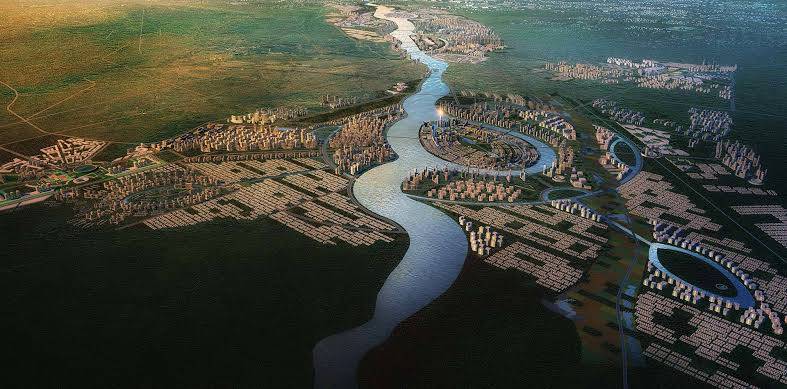
Women’s Action Forum (WAF) expresses deep concern at the implementation of the Ravi River Urban Development Project (RRUDP). It says the work at the site has been initiated prior to the public hearing for the EIA (Environmental Impact Assessment) scheduled for 21st February 2021.
WAF demands an immediate stop to the implementation of the works such as land acquisition, dredging and earth works until the due process of approval of the project is completed including the EIA.
The project will impact 100,000 persons - half of them are women and girls - threatening the livelihoods of most of these people who depend on agriculture, farming and cattle rearing. Channelization of the river and constructing 3 barrages in order to create a lake for a waterfront development on the model of Dubai Jumeirah beach is against all principles of sustainable development and ecological sustainability.
The project should focus on cleaning up of a large number of drains, originally storm water channels, running through the city that carry municipal and industrial sewage if it is seriously interested in urban development which is polluting the river. This will also relieve the pressure on the billion rupees treatment plants that the project envisages to construct.
In place of riverfront development a minimum of a 20 year flood plain amounting to less than 20% of the overall project area should be retained in its natural conditions. It can be declared a National Park to be used as a recreational area for picnics, fishing, bird watching, walking and cycling tracks, outdoor games and nature tourism such that in case of a flood there is no damage to infrastructure along the entire 46 km stretch of the project. The National Park with open land and clean river water will also continue to be a lung for the Lahore city.
WAF supports the local population in rejecting the project as a threat to their livelihoods and of displacement; demands that the floodplains not be touched at all; it opposes use of engineering of a natural resource with the flood plains to be declared a national park. The high investment and ecologically damaging interventions proposed in the feasibility studies and the EIA document must be reviewed and recommendations of an alternative approach which is sustainable both environmentally and economically be explored.
WAF is not antidevelopment but supports the current government manifesto for affordable housing, no encroachments onto agricultural land and billion tree Tsunami.
WAF demands an immediate stop to the implementation of the works such as land acquisition, dredging and earth works until the due process of approval of the project is completed including the EIA.
The project will impact 100,000 persons - half of them are women and girls - threatening the livelihoods of most of these people who depend on agriculture, farming and cattle rearing. Channelization of the river and constructing 3 barrages in order to create a lake for a waterfront development on the model of Dubai Jumeirah beach is against all principles of sustainable development and ecological sustainability.
The project should focus on cleaning up of a large number of drains, originally storm water channels, running through the city that carry municipal and industrial sewage if it is seriously interested in urban development which is polluting the river. This will also relieve the pressure on the billion rupees treatment plants that the project envisages to construct.
In place of riverfront development a minimum of a 20 year flood plain amounting to less than 20% of the overall project area should be retained in its natural conditions. It can be declared a National Park to be used as a recreational area for picnics, fishing, bird watching, walking and cycling tracks, outdoor games and nature tourism such that in case of a flood there is no damage to infrastructure along the entire 46 km stretch of the project. The National Park with open land and clean river water will also continue to be a lung for the Lahore city.
WAF supports the local population in rejecting the project as a threat to their livelihoods and of displacement; demands that the floodplains not be touched at all; it opposes use of engineering of a natural resource with the flood plains to be declared a national park. The high investment and ecologically damaging interventions proposed in the feasibility studies and the EIA document must be reviewed and recommendations of an alternative approach which is sustainable both environmentally and economically be explored.
WAF is not antidevelopment but supports the current government manifesto for affordable housing, no encroachments onto agricultural land and billion tree Tsunami.
